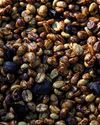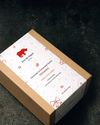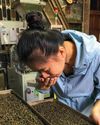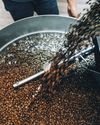يحاول ذهب - حر
Alt-Milks On Test
Issue 41
|Caffeine
Non-dairy alternatives to milk have seen a huge rise in popularity, but which work best with speciality coffee?
-

In the words of Mark Kurlansky, author of Milk! A 10,000-Year Food Fracas, dairy is “one of the most argued-over foods in human history”. One minute it’s essential for good health, the next it’s branded an environmental killer. But while that argument may never be settled, one thing is for sure: the past decade or so has seen the arrival of a whole range of exciting and diverse alternatives to milk.
Until the late 2000s, the only real alternative to milk for those with lactose intolerance was soya (or soy) milk. That came with its own health controversies – too much can be bad for those with thyroid disease and is said to cause fertility problems – and it wasn’t always easy to find. Few people actively chose to drink soya milk anyway; doing so was seen as an oddity. But something has changed. Around the world, plant-based alternatives to milk – also known as “mylks” – now form an industry estimated to be worth $16 billion. According to market research company Mintel, UK milk sales have increased by 30% since 2015. It seems the consumption of mylk has shifted from dietary requirement to lifestyle choice.
So why are people drawn to the alternatives? According to the British Nutrition Foundation, only about 5% of the UK are thought to suffer any degree of lactose maldigestion, but far more people than this have been choosing non-dairy alternatives. This is partly because of the general rise in plant-based diets, but people also choose mylks for health reasons: most are lower in saturated fats than cow’s milk (and other animal-derived products such as goat’s milk), while rice and coconut mylks rarely cause allergic reactions, and almond is a better source of vitamin E than dairy. Another key reason for switching to mylks is the increasing evidence that dairy farming is harmful to the environment.
هذه القصة من طبعة Issue 41 من Caffeine.
اشترك في Magzter GOLD للوصول إلى آلاف القصص المتميزة المنسقة، وأكثر من 9000 مجلة وصحيفة.
هل أنت مشترك بالفعل؟ تسجيل الدخول
المزيد من القصص من Caffeine

Caffeine
The Future Of Decaf?
A US company claims its pouch extracts caffeine without harming flavour
1 min
Issue 42

Caffeine
Great Coffee Shouldn't Cost The Earth
Caffeine’s editor-at-large Tim Ridley explains how to lower the environmental impact of your coffee-drinking habit
4 mins
Issue 42

Caffeine
What The F**k...Is Honey Processing?
Apart from natural and washed coffees sits a whole other category, as Sierra Wen Xin Yeo explains
3 mins
Issue 42

Caffeine
The grind
SEASONAL COFFEE
1 mins
Issue 42

Caffeine
Tea with purpose
Michelle and Rob Comins explain how tea can be a force for good
2 mins
Issue 42

Caffeine
Ten years on
We celebrate the London Coffee Festival’s first decade with a look at its successes
3 mins
Issue 42

Caffeine
Chocolate and espresso pavlova with fennel roasted grapes
This year I’m giving coffee centre stage on the Christmas dessert table. I firmly believe coffee shouldn’t just be an afterthought to accompany dessert, it should be the dessert – but aside from that, it just makes sense.
2 mins
Issue 42

Caffeine
Bitter Barista
Latte art competitions have been milking it for too long – they used to be fun, but now their focus on the wrong things is harming barista skills, says our cantankerous columnist
3 mins
Issue 42

Caffeine
What The F**k ...Is The Maillard Reaction?
It’s just one of the elements you need to know about if you’re going to roast coffee successfully, as Edgaras Juška explains
2 mins
Issue 41

Caffeine
Work Wonders
Coffee gets people through the working day. So it stands to reason that better coffee produces better work – and in some places the two are in perfect harmony, says Phil Wain
4 mins
Issue 41
Translate
Change font size

